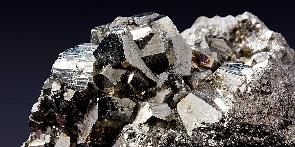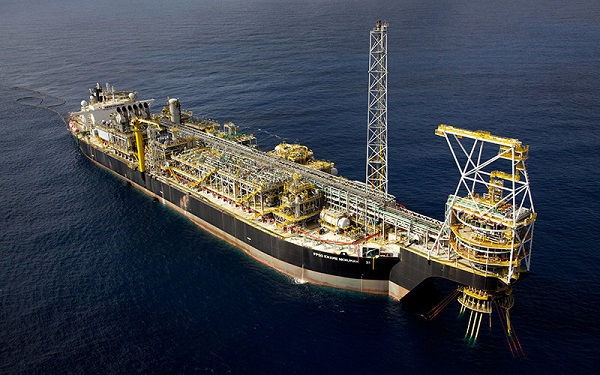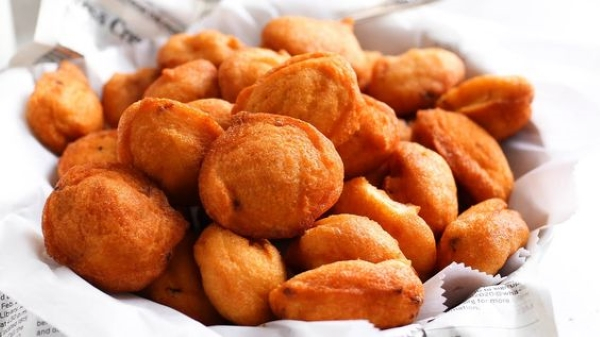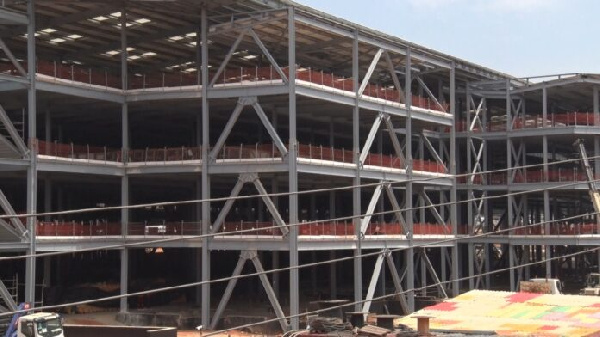How newly discovered iron ore can make Ghana rich
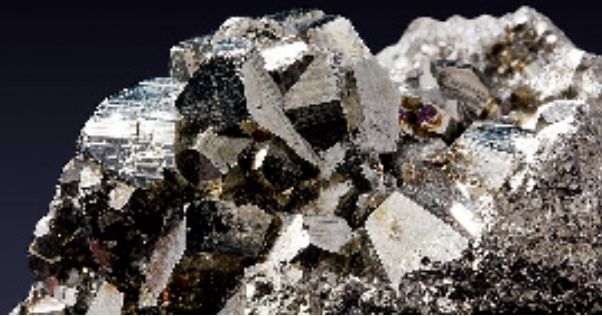
It is the most common metallic element in the universe; Iron ore, with the element number 26 and the symbol – Fe. It is a dark, silvery-gray metal but sometimes has traces of reds, oranges and yellows when it oxidizes.
Iron is produced in some 50 countries worldwide, with Australia, Brazil, China, and India being among some of the largest iron ore-producing nations.
In 2020, Ghana made strides as the 88th largest exporter of Iron Ore in the world, having exported $3.66k to countries including Germany.
There are even more prospects for the country following its recent discovery of high-grade iron ore in the Oti Region by the Ghana Geological Survey Authority.
Joshua G. Makubu, Oti regional Minister who announced this noted that the mineral was found in the Guan, Biakoye, Jasikan, Kadjebi, and Krachi East Districts of the region.
The Ghana Geological Survey Authority also noted that the iron ore deposits discovered are of the highest grade – 55.22 weight percent (fu).
With iron being one of the most wanted minerals for the steel industry among others, the question remains, how Ghana’s discovered iron ore will bring maximum yield not only for the Oti Region but also for the entire nation.
Steel and iron production:
Steel, one of the world’s most important materials is made out of 98 percent of iron ore.
Considering its importance in fields like construction and engineering, for the making of materials including roofing sheets, iron rods, etc., and for vehicles, and even in the domestic sense, for cooking utensils, Ghana stands to gain much if it puts the right structures in place and the necessary policies to guide its exploitation.
Raw iron is not as strong in its natural form and therefore is mostly alloyed with a variety of elements (such as tungsten, manganese, nickel, vanadium, chromium) to strengthen and harden it, making useful steel for construction, automobiles, and other forms of transportation such as trucks, trains and train tracks. Iron is sometimes used in its alloyed forms for beds, cutlery, surgical instruments and jewelry among others.
Iron is also used in other forms for different products and materials.
Powdered iron is used in metallurgy products, magnets, high-frequency cores, auto parts, catalyst. Radioactive iron is used in medicine, tracer element in biochemical and metallurgical research. Iron blue is used in paints, printing inks, plastics, cosmetics (eye shadow), artist colors, laundry blue, paper dyeing, fertilizer ingredient, baked enamel finishes for autos and appliances, industrial finishes whereas Black iron oxide is used as pigment, in polishing compounds, metallurgy, medicine, magnetic inks, in ferrites for electronics industry.
Increase exportation and reduce importation:
Demand for iron ore remains very high around the world and Ghana is one of the exporters of Iron Ore. However, the country still imports some amount of the mineral.
In 2020 for instance, Ghana is said to have exported $3.66k in Iron Ore, making it the 88th largest exporter of Iron Ore in the world.
According to the Observation of Economic Complexity (OEC), Ghana mostly exports to Germany.
This implies that Ghana has huge exports of revenue generation from iron ore exports if the mineral is well exploited and regulated.
The exploitation of iron ore in the country will further reduce the country’s rate of importation thereby easing the pressure on foreign exchange reserves.
This will lead to retention of revenue from the sector in the country, which will result in the growth of the Ghanaian economy
Job creation:
The discovery and exploitation of iron ore in the Oti Region will create jobs in the mining communities where they have been discovered which will translate to the region and the country as a whole.
More people will be employed both to mine and also for the production of the raw material into refined products.
This will also lead to the empowerment of locals through investors and industry players such that revenue and profits stay in the country.
Investors:
So far some 10 investors have expressed interest in mining the ore in the Oti Region as confirmed by Farouk Aliu Mahama, Board Chairman of the Ghana Integrated Iron and Steel Development Corporation (GIISDC).
These investors included Africa Exploration and Mining Ghana Limited, Gem Global Ventures, Cloudline Ghana Ltd, Q3 Company Ltd, and Star Steels Ltd, Shokram Ltd, B5 Plus Ltd, Fabrimetal Ltd, Planet One Group and Magya Mining and Contract Services Ltd. among others.
It is assured however that none of these investors would exclusively own a concession but rather sign a Memorandum of Understanding with GIISDEC and the host communities to mine within a specific region to the benefit of the region and the nation at large.
Meanwhile, the Ghana Geological Survey Authority has noted that it has blocked out the reserved areas where iron ore has been discovered in the Oti region and is working on it to know the depth and volume of the ore.
After all details have been established, real mining could commence.
Joshua G. Makubu, Oti regional Minister has noted that government is determined to add value to the raw commodity, saying that the Ghana Integrated Iron and Steel Development (GIISDEC) would work closely with the GGSA and the community to provide full value chain.
CLICK HERE TO DOWNLOAD PRESS RADIO MOBILE APP
“Currently we are at a stage the technical people will call it mineral resource estimation to get the actual tonnage available on the land before mining can start,” the Minister disclosed.
Source: www.ghanaweb.com

